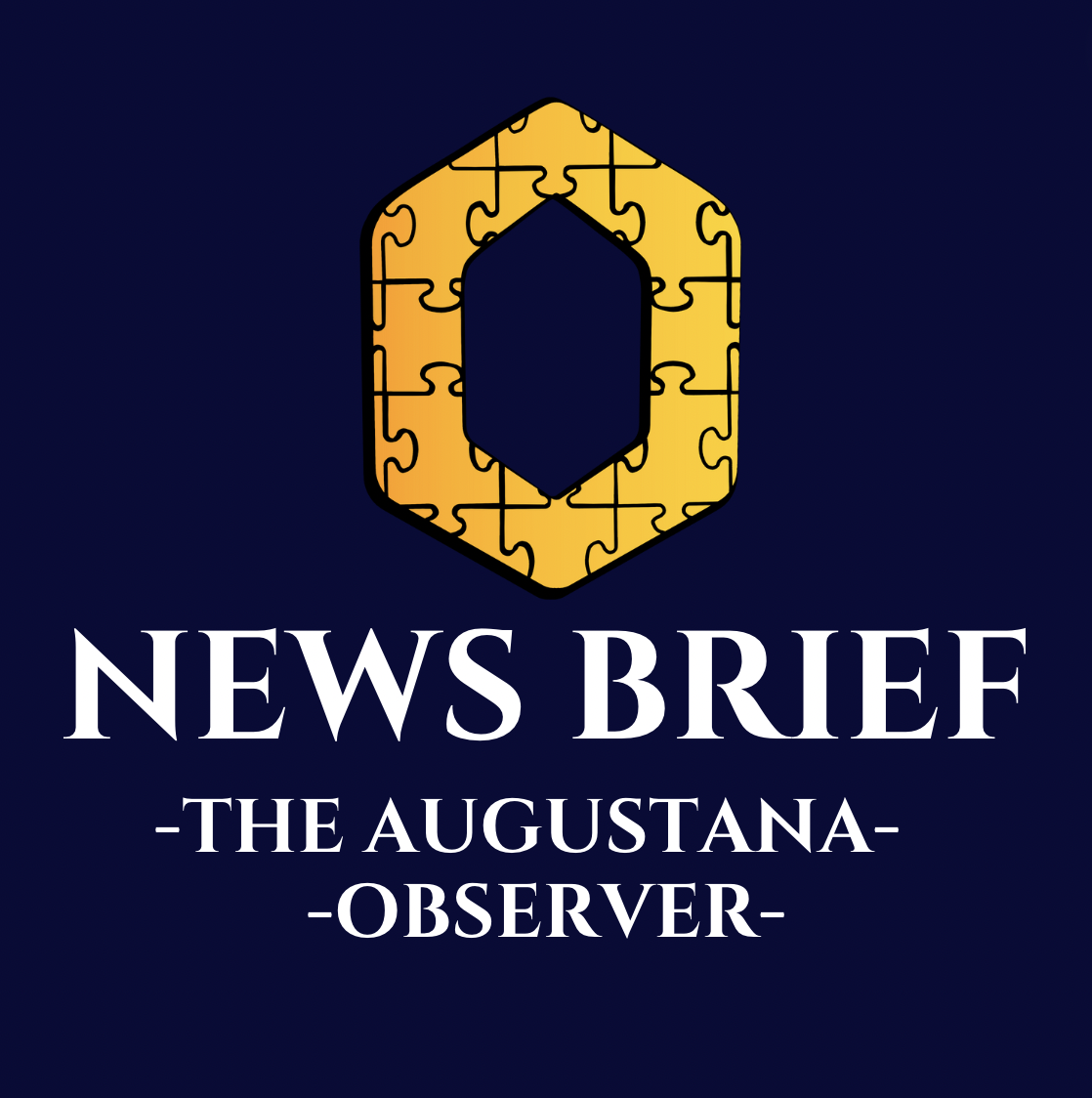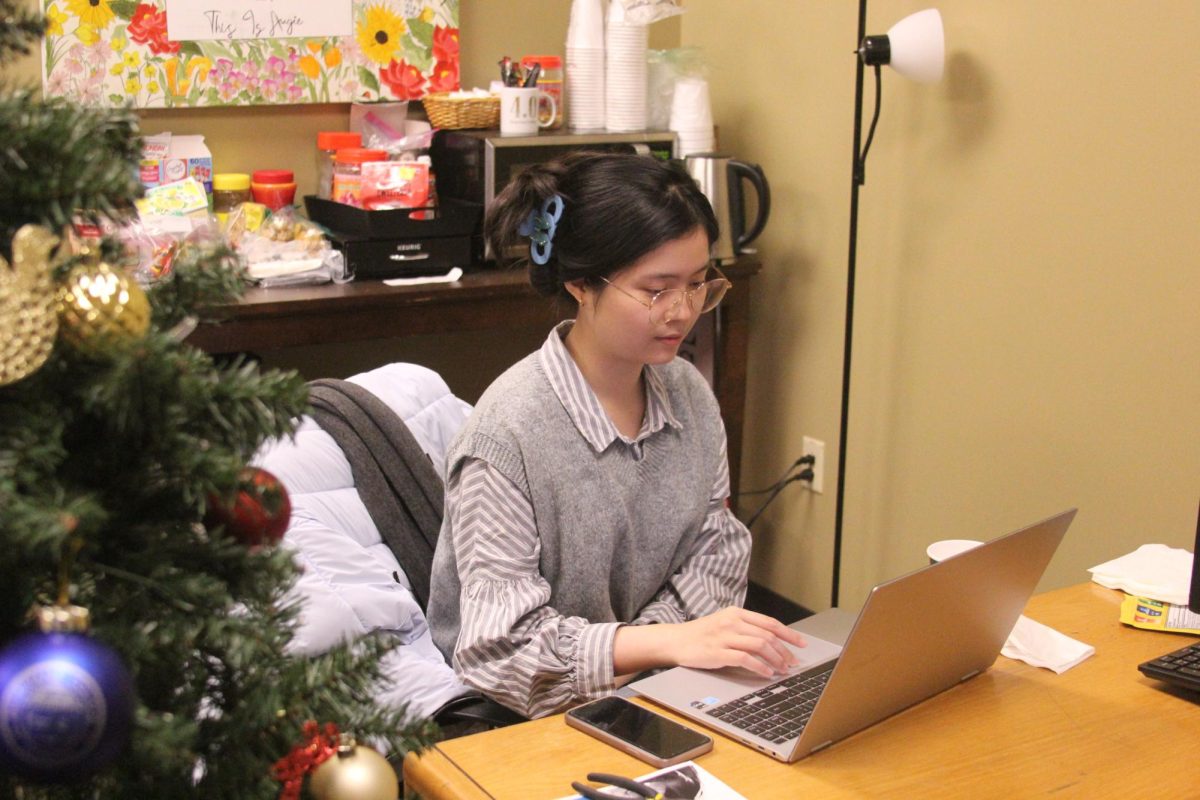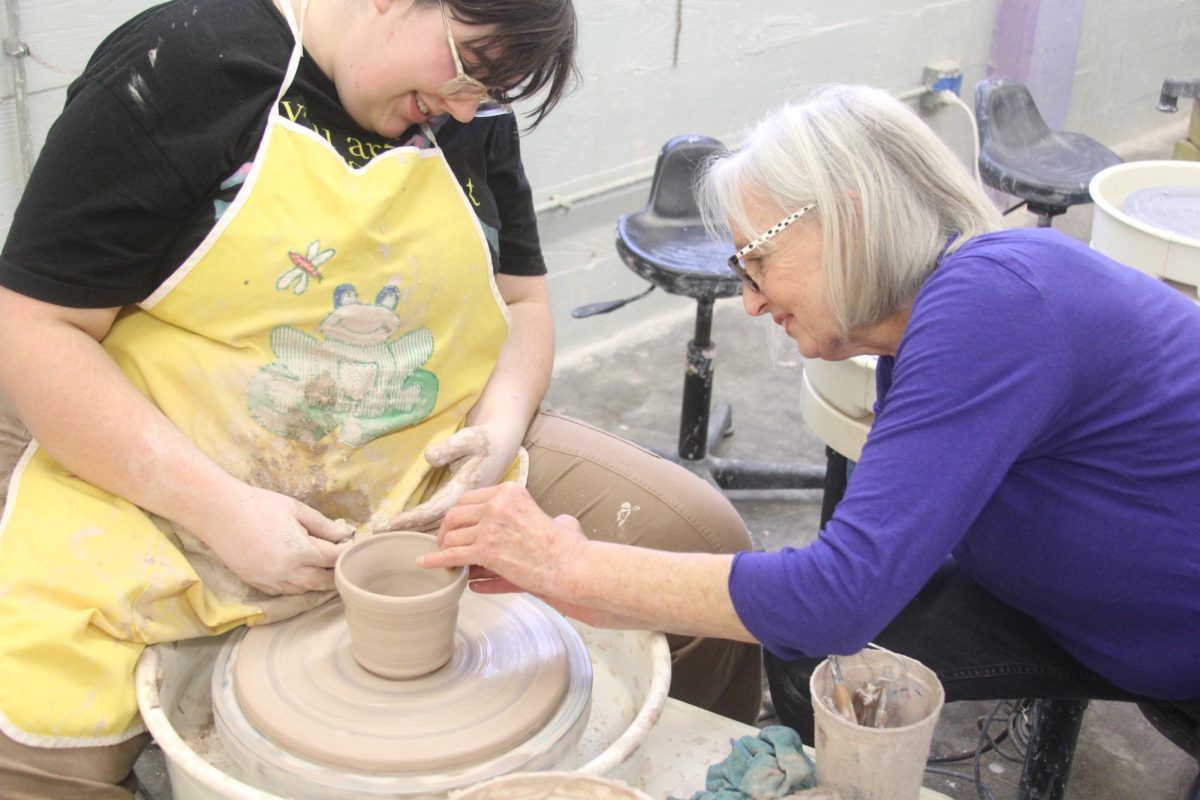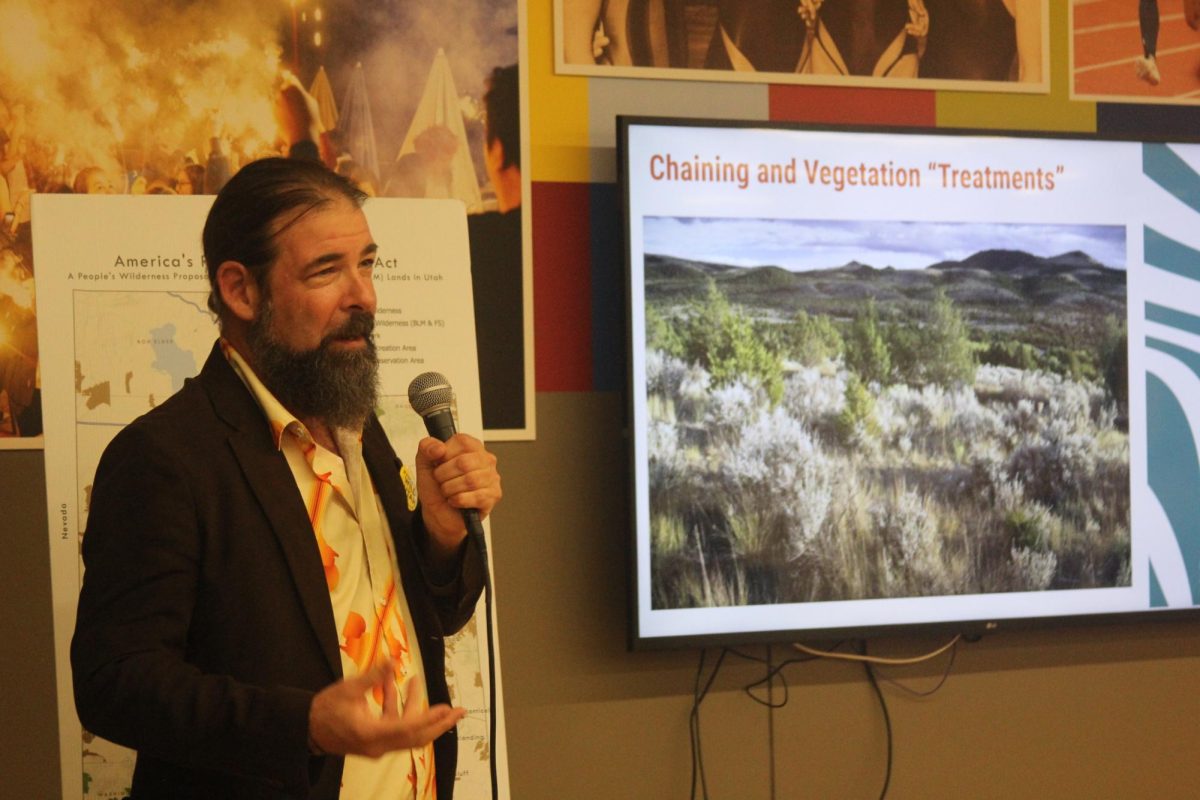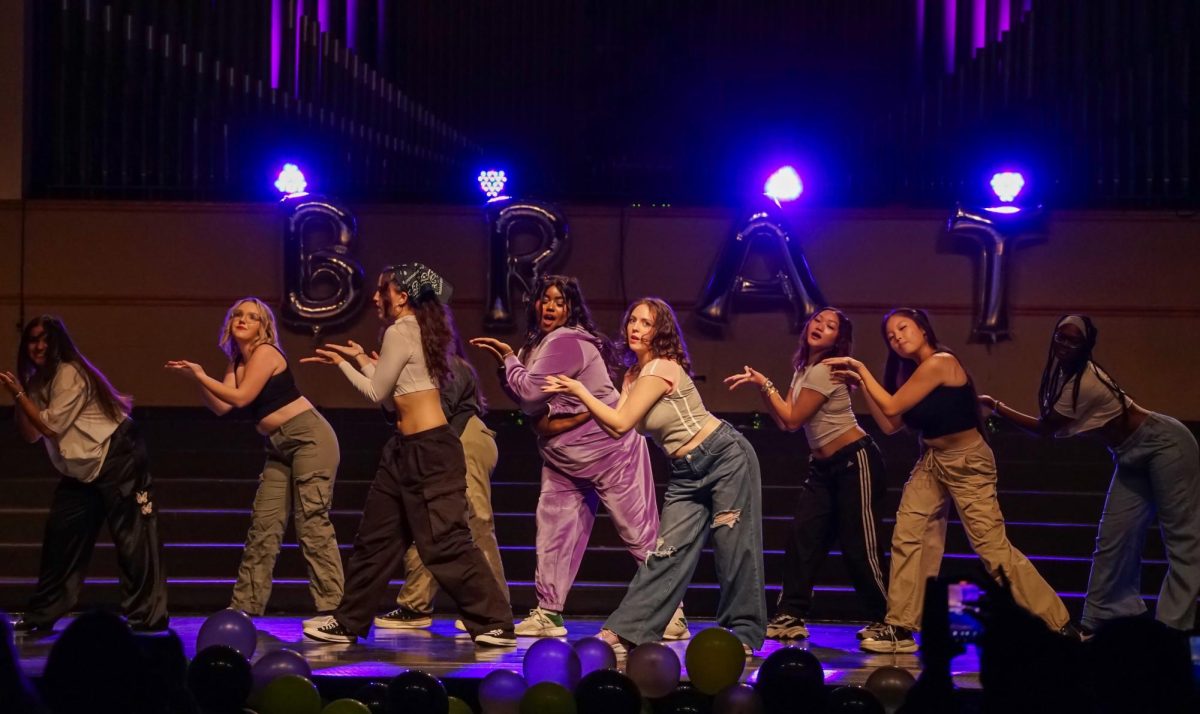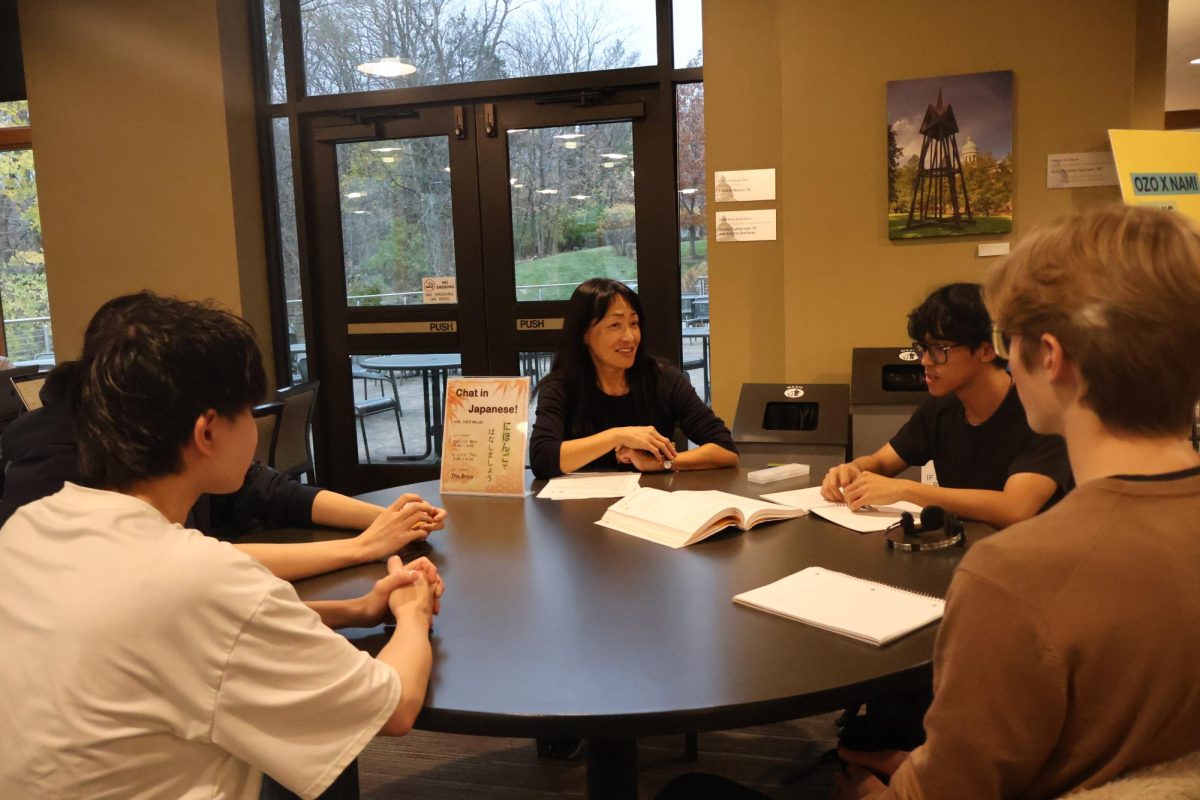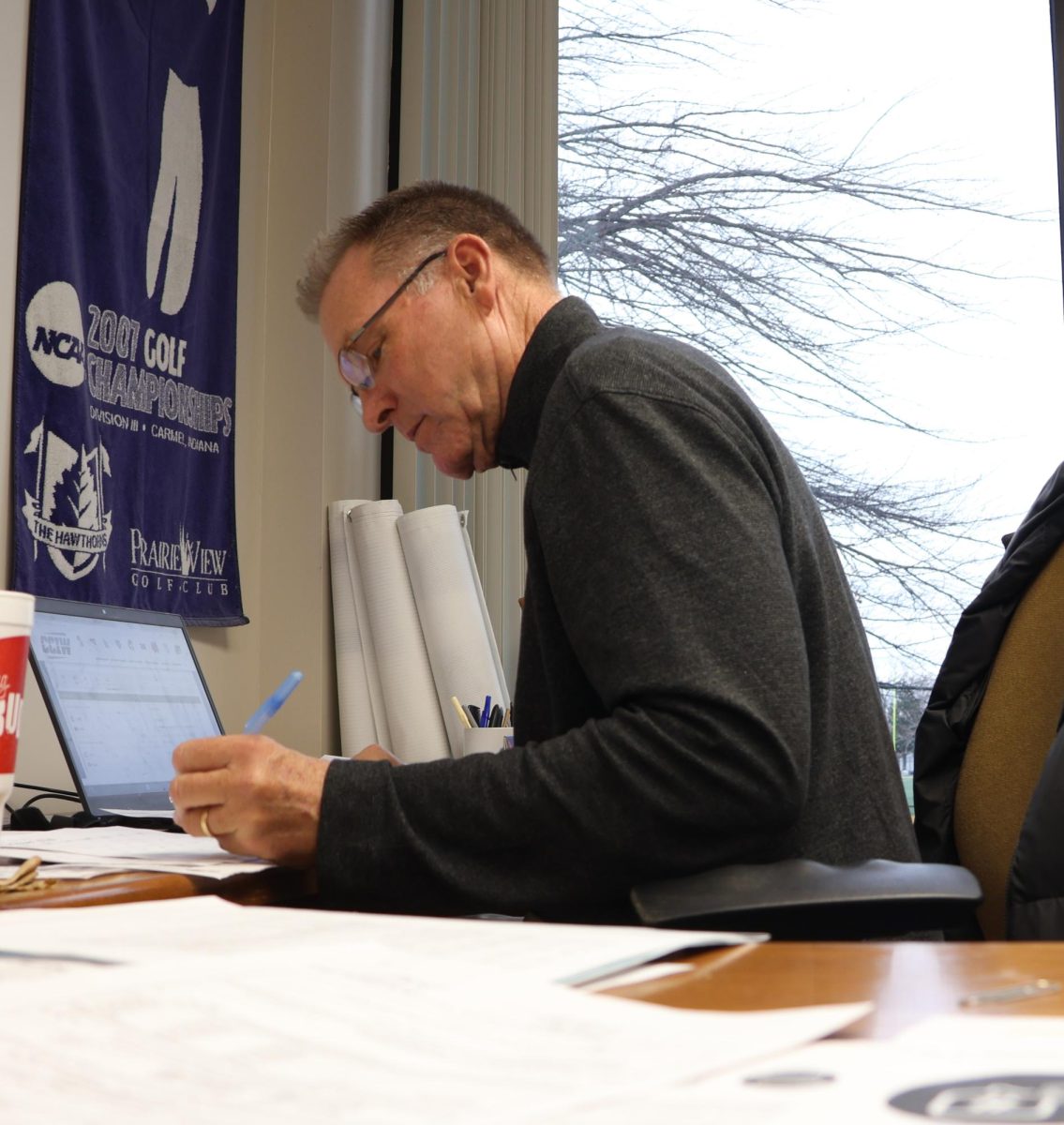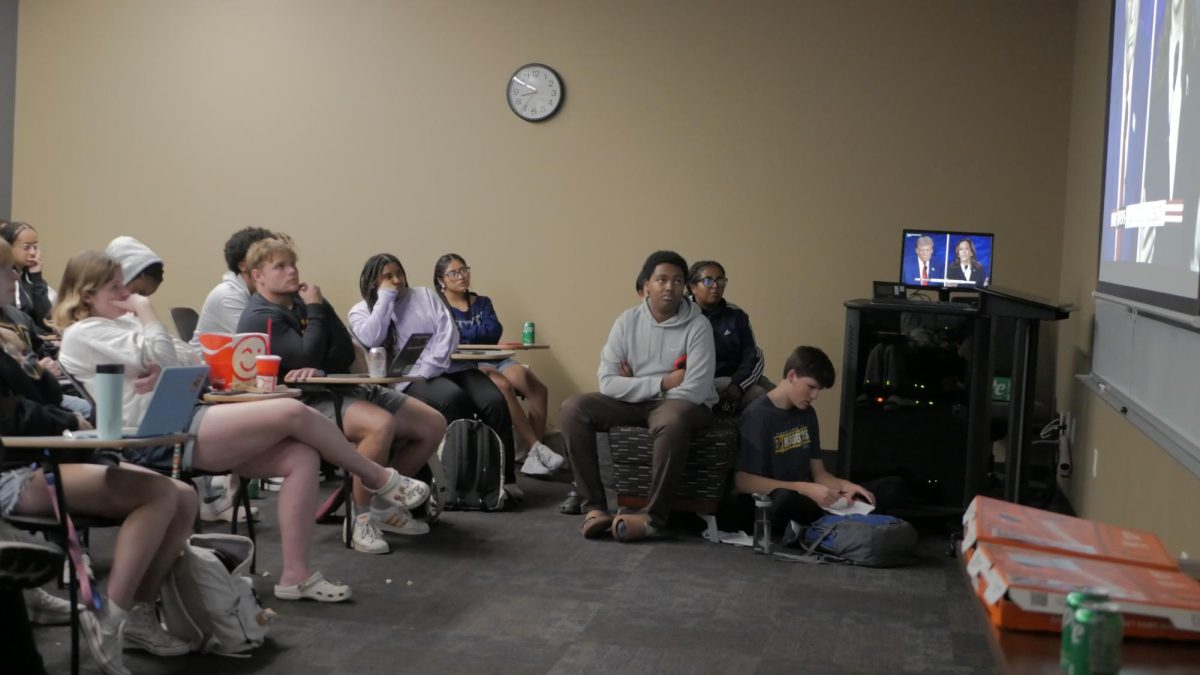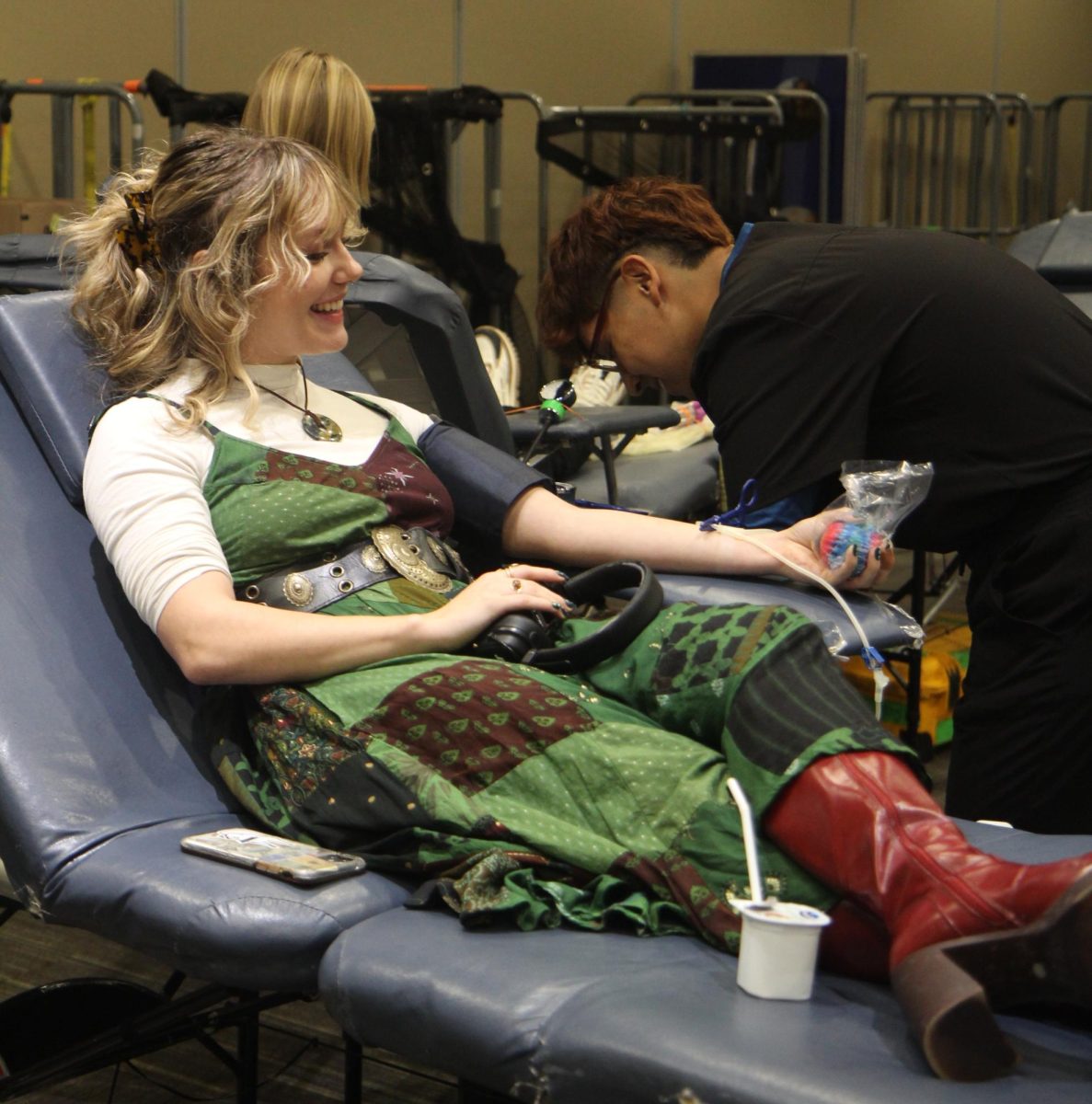Tuesday Sept. 10 saw Donald Trump and Kamala Harris take the stage in their first presidential debate of the election cycle.
The event, hosted by ABC and moderated by “World News Tonight” anchor David Muir and ABC News Live “Prime” anchor Linsey Davis, was the first time former President Donald Trump and Vice President Kamala Harris have come together to address the country since President Joe Biden dropped out of the presidential race in August.
The candidates discussed issues ranging from abortion, the economy, immigration policies, homeownership and the January 6 insurrection.
On campus, students gathered for a watch party in Old Main. Hosted by Katie Madel, political science professor, and organized by the political science department in collaboration with the Augustana Legal Association and Politics Club, the watch party brought out a large crowd.
The desks in the room were filled with students. Extra seating had to be brought in to seat everyone who came to watch the debate. Students were seen with popcorn and various snacks, watching intently as the two candidates delivered statements on issues aligned with many of their own personal concerns.
Madel said that giving students a place to both consume and converse together is necessary to cultivate new perspectives.
“I think it’s better with friends and with other people who you can reflect on what you’re hearing [with],” Madel said. “You don’t necessarily have this very often, where you can get diverse perspectives from people who maybe you’re not friends with, maybe you wouldn’t normally interact with, in a somewhat more comfortable classroom setting.”
For senior Kelly Moore, making time to tune into the debate is important because these issues affect everyone, regardless of background. The outcome of the November presidential election will have an impact, whether it be positive or negative, on every member of the Augustana community.
“As a result of all this, no matter what’s going to happen, this is going to rest in the hands of our generation,” Moore said. “So, how they react to different problems now is what we’re going to be experiencing in the future.”
Given Augustana’s large percentage of international students, not every student will be able to vote in November. Those who are unable to vote still showed up to watch the debate, citing its importance in knowing what to expect from the political climate in the U.S. during their time at Augustana and beyond. For First-Year student Aji Muyodi, watching the debate gives important insight into the near future.
“I’m living here for the next four years, so I would like to know what direction the country is going in,” Muyodi said. “I’m not American and not voting or anything, but it’s just to know what to expect in the state of affairs.”
The importance of the debate led to some students being disappointed with the outcome, having hoped that the candidates would more thoroughly explain their perspectives on issues raised in questions by the moderators.
“I would love to see each candidate thoroughly explain what they say, because I think right now, they’re kind of stuck in a rut, using talking points that maybe people who don’t follow politics 24/7 are not familiar with,” junior Kailynn Catalani said. “I would like to see both candidates spell out their stances step by step instead of always resorting to the most stirring talking points.”
Muyodi’s impression of the debate was similar to Catalani’s, that the candidates were dodging in depth answers, opting for their predetermined messages instead. Even though students were hoping for policy details, the debaters’ approaches were not surprising.
“I think there’s been a lot of yelling. There’s been a lot from both sides, a lot of avoiding questions,” Muyodi said. “They’re talking about what they want to talk about, and every question kind of goes back to what they want to say instead of what they’re being asked to respond to, which is kind of expected.”
However, not everyone agreed with this assessment. First-Year Alonso Vizcarra said that despite the political divide between the two candidates, he found this debate to have been more balanced than the Trump-Biden debate in June.
“In the last debate, there was a clear loser because of aspects external to the debate,” Vizcarra said. “But in this case, I don’t really think it’s going to change the outcome of the elections or the vote.”
Although this debate might not have major effects on the current trajectory of the elections, Madel said staying updated on upcoming news will be crucial in the next few months.
“We want to see how the media covers this, to get a really good sense of what the American public is going to get from this, as well as what the outcome from this is going to be,” Madel said.
The vice presidential debate between Ohio Senator JD Vance and Minnesota Governor Tim Walz will be held on Tuesday, Oct. 1. The debate will be hosted by CBS and air at 8 p.m. central standard time.
